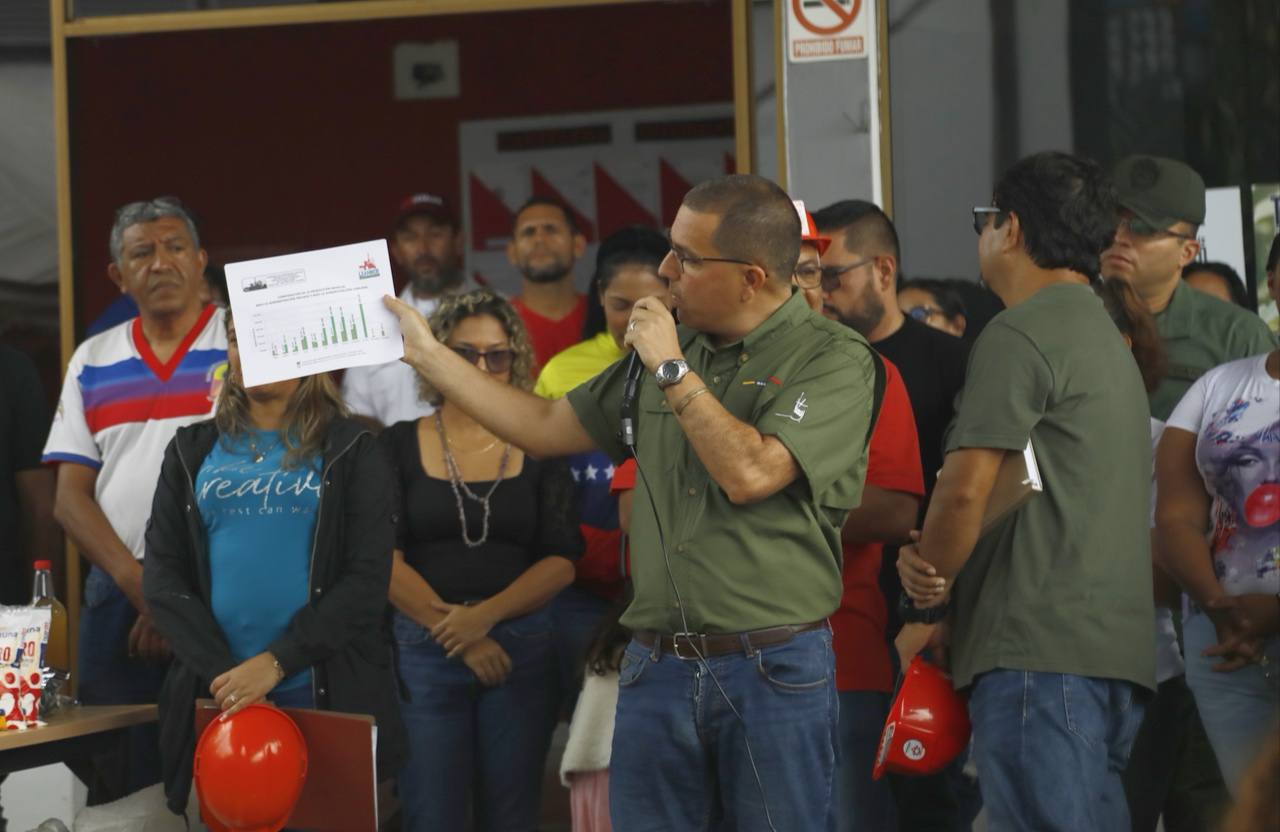Barinas, November 4, 2023 (Press MinComunas) – In a meeting with the Communal Economic Corn Circuit in Barinas state, the People’s Minister for Communes and Social Movements, Jorge Arreaza, highlighted this Saturday that this CEC “has become a center for the promotion of communal production.”
The productive day allowed Minister Arreaza to recall the experience lived during the presidential ceremony held on October 20 with the communal farmers of Venezuela in commemoration of the 11th Anniversary of the Rudder Around (Golpe de Timon), where the President of the Republic, Nicolas Maduro, ordered the State institutions to have as a priority the purchase of the productions of the different Communal Economic Circuits.
During his speech, the Minister highlighted that the work of the CEC of corn in the state has achieved “507,280 kilos of corn produced in October”, a total of 169,093 thousand families that benefit from this communal production, affirming that “we are going for more, we have to improve the storage.”
He emphasized that the importance of the creation of food in Communes is that “this production is not simply going to the shelves of a private market or is going to Colombia, no, it is reaching the families of a good part of Barinas, and I received information that it is arriving in Apure, where there are CLAP bags that come with Ticoporo corn flour, Made in Commune.”
Throughout the day, there was information about the work methods that would be through the Communal Plan of the Network of Corn Growers of the state. Four of the producers who brought their harvests to the Leander Corn Processing Plant collected 65,640 kilos of corn.
The “Hecho en Comuna” (Made in Commune) will guarantee food sovereignty.
During the activity, Minister Jorge Arreaza indicated that the production of food under the Made in Commune brand would serve as an example to replicate the experiences throughout Venezuela, asserting that “it does not matter if they lift the sanctions or put them back on us a thousand times if we produce our food in the country, it does not matter what they do against Venezuela, because we guarantee our agri-food sovereignty.”
He emphasized that the goal is to cover “the whole state of Barinas,” being the producers who “will have become the people’s teachers, to go all over Venezuela to replicate and explain” the experience, to achieve the reproduction of the productive activities in the whole country.
He also affirmed that if the CECs “have their planning tables, hold their assemblies and interact with the Government of President Nicolas Maduro, for the necessary support, we will break the traditional production model in Venezuela.”
The activity allowed the attendees to get to know the other CECs, among which stand out the “wood, soap, detergent, textile, uniform, chicken breeding,” being the by-products of the plant, the ones that go to the breeding CECs that are in the process of creation.



